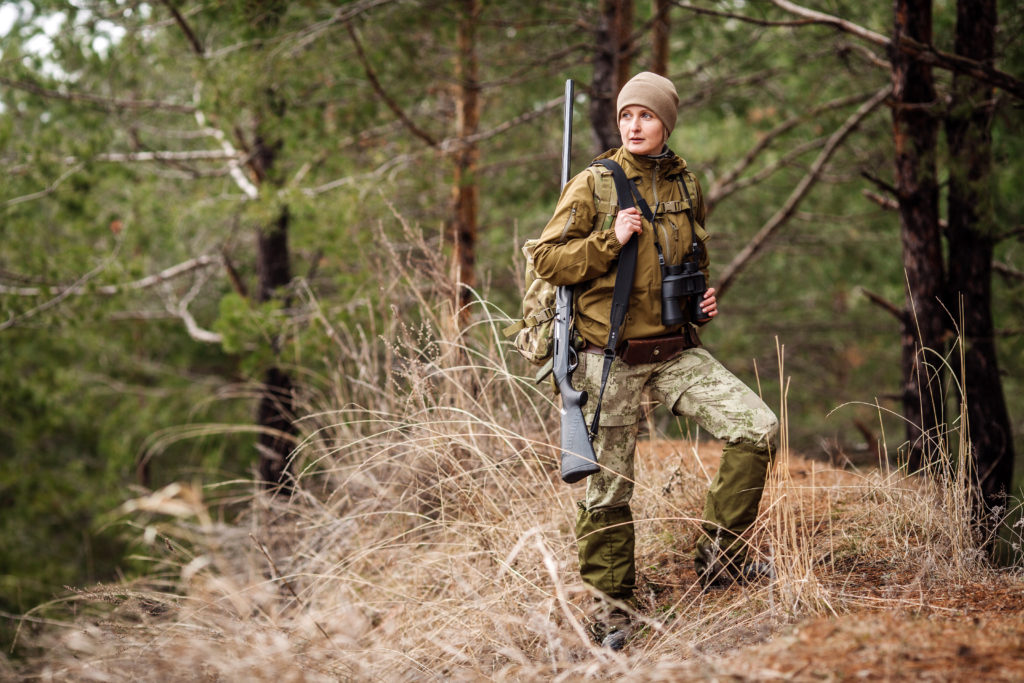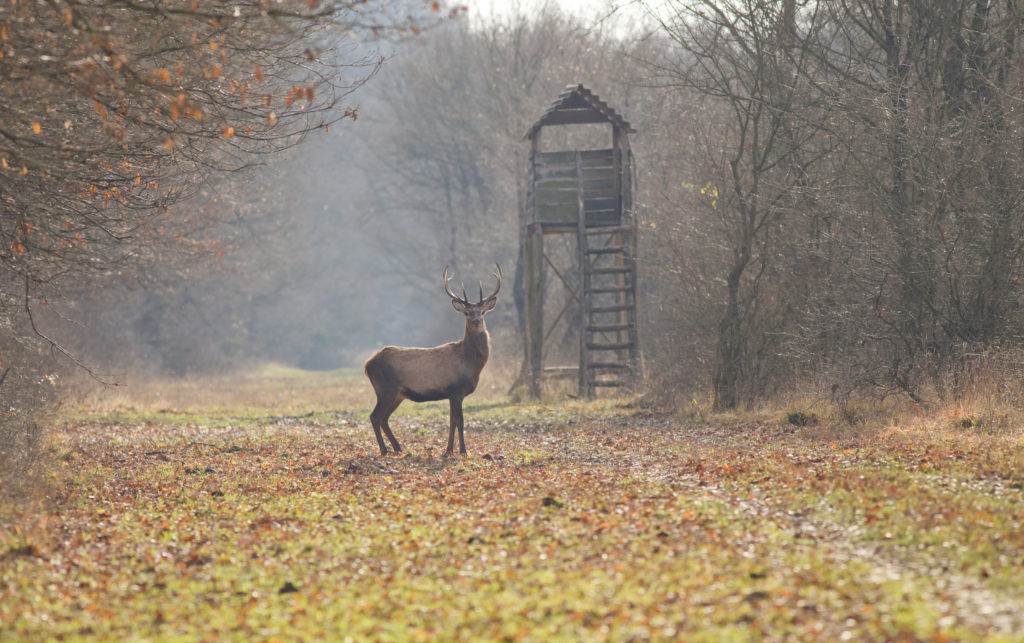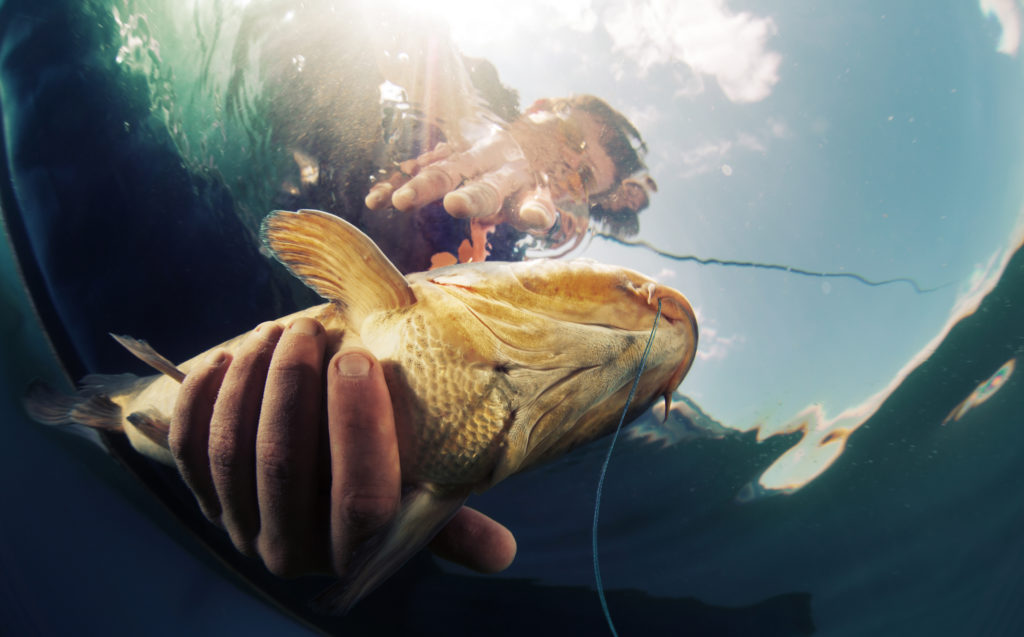My family lived in the country, and as a young boy, I spent every spare minute in the woods. I loved the solitude and I loved everything nature had to offer. Much of my young adult life was spent hunting and fishing all throughout the Central Florida area.
 Although I no longer hunt, I am still an avid fisherman. Any chance we get, my wife TeResa and I pack up the SUV and head for the coast. There is nothing like fishing Florida waters, whether they be fresh or salt.
Although I no longer hunt, I am still an avid fisherman. Any chance we get, my wife TeResa and I pack up the SUV and head for the coast. There is nothing like fishing Florida waters, whether they be fresh or salt.
The more than 30,000 lakes, almost 6 million acres of managed wildlife areas and 1,350 miles of ocean coastline in Florida make our state one of the premier recreational hunting and fishing states in the nation.
The Florida Fish and Wildlife Conservation Commission (FWC) was created to protect the wildlife and maintain the protected lands and waters throughout the state. To this end, FWC has established rules and regulations governing the state’s fish and wildlife resources. It pays to know those rules and regulations.
If you are caught fishing or hunting without a license, it will cost you $50 plus the cost of a license. The second offense will cost you $100 plus the cost of a license. Ignorance of the law will not be excused. It is your job to buy the proper licenses, know which types of game and fish can and cannot be harvested and in what amounts.
Any Florida resident between 16 and 65 years of age and any state visitor over the age of 16 must get a license to hunt or fish.
 Licenses can be purchased online, at sporting goods stores, many bait and tackle shops, and at your local tax collector’s office. Anyone born after June 1, 1975 may be required to take one or several safety courses prior to receiving hunting or fishing license(s).
Licenses can be purchased online, at sporting goods stores, many bait and tackle shops, and at your local tax collector’s office. Anyone born after June 1, 1975 may be required to take one or several safety courses prior to receiving hunting or fishing license(s).
Fishing
Your fishing license is required to be with you any time you attempt to fish in a freshwater stream, river or lake. If you cast a line into the water and catch nothing you still need a license. A license is also required to help someone else fish. For example, if you are baiting hooks, you must have a license.
 You don’t need a license if you are a resident fishing with live or natural bait, using poles (cane poles, etc.) that are not equipped with a fishing-line-retrieval mechanism (reel), and you are fishing for noncommercial purposes in the county in which you reside. Anyone fishing in a fish management area must have a license no matter which equipment he or she uses.
You don’t need a license if you are a resident fishing with live or natural bait, using poles (cane poles, etc.) that are not equipped with a fishing-line-retrieval mechanism (reel), and you are fishing for noncommercial purposes in the county in which you reside. Anyone fishing in a fish management area must have a license no matter which equipment he or she uses.
A saltwater fishing license is required when fishing from a vessel, island or shore and is also needed to harvest any native or nonnative marine organisms, such as crabs, lobsters and marine plants.
Florida residents may get a resident recreational saltwater shoreline fishing license at no cost. This allows you to fish from land or any structure attached to land. Even though the license is free, you must have one in your possession when fishing from shore. Visitors must purchase a 3-day, 7-day or annual nonresident saltwater fishing license to shore fish.
No license is required to use a cane pole while shore fishing in your home county.
Hunting
 Residents and visitors must have a license to hunt in Florida. Anyone who is assisting another person who is hunting (setting decoys, calling birds, etc.), whether actively hunting or not, must also have a license.
Residents and visitors must have a license to hunt in Florida. Anyone who is assisting another person who is hunting (setting decoys, calling birds, etc.), whether actively hunting or not, must also have a license.
Hunters may use bows, crossbows, pre-charged pneumatic air guns, pistols, rifles, shotguns and muzzleloaders. Deer, turkey, gray squirrel, quail, bobcat and otter may be hunted only during designated seasons. Rabbits, wild hogs, raccoons, opossums, skunks, nutrias, beavers and coyotes may be hunted year round.
Visit myfwc.com for a detailed Florida fishing and hunting regulations guide or to purchase your license(s) online. Many license types are available and prices vary.
Zone C Guidelines
(Includes Marion County and most of North and Central Florida)
Weapon Specifications
Archery – Only bows may be used. However, it is prohibited to use bows equipped with sights or aiming devices with electronic computational capabilities or light/laser projection during archery season.
Crossbows – Only bows and crossbows can be used.
Muzzleloaders – Only muzzleloaders fired by wheel lock, flintlock, percussion cap or centerfire primer (including 209 primers) and crossbows and bows may be used. Muzzleloaders that can be loaded from the breech are not legal during muzzleloading gun season.
General Gun – Centerfire rifles, shotguns, centerfire pistols, muzzleloaders, pre-charged pneumatic air guns, crossbows and bows may be used during general gun seasons.
Bobcat
Statewide: Dec. 1–March 31
Antlered Deer
(deer that meet antler regulations within DMU)
Archery season:
Sept. 15–Oct. 14
Crossbow season:
Sept. 15–Oct. 19
General gun season:
Sept. 15–Oct. 19
Turkey (gobblers and bearded turkeys only)
Archery season: Sept.15–Oct. 14
Crossbow season: Sept. 15–Oct. 19
Fall turkey season: Nov. 3–Dec. 30
Shotguns, rifles, pre-charged pneumatic air guns, pistols, muzzleloaders, crossbows or bows may be used.
Gray Squirrel
Statewide: Oct. 13–March 3
Antlerless Deer
(deer without or with less than 5-inch antlers)
Archery season: Sept. 15–Oct. 14
Crossbow season: Sept. 15–Oct. 14
General gun season:
By Deer Management Units (DMU)
DMU C1: Nov. 16-19
DMU C2: Nov. 16-18
DMU C3: Nov. 16-18
DMU C4: Nov. 16-19
DMU C5: Nov. 3-4, Nov. 17-18
DMU C6: Nov. 16-19
Quail
Statewide: Nov. 10–March 3
Rifles, shotguns, pistols, muzzleloaders, air guns, crossbows and bows may be used. Gray squirrel and quail also may be taken during archery, crossbow and muzzleloading gun seasons using the respective methods allowed during those seasons.
Rabbits, Wild Hogs, Raccoons, Opossums, Skunks, Nutrias, Beaver and Coyotes
May be taken year round by rifle, shotgun, pistol, muzzleloader, air gun, crossbow or bow. May also be trapped, except for rabbit.1
Fishing Regulations and Limits
There are 23 separate General Species fish and each has its own rules and limits. There are also unregulated species with a general rule for all of them.
There are eight reef fish with different rules and limits. There are also gear regulations and unregulated species.
There are eight species of Crabs, Shrimp and Shellfish with different rules and limits. There are also unregulated species.






